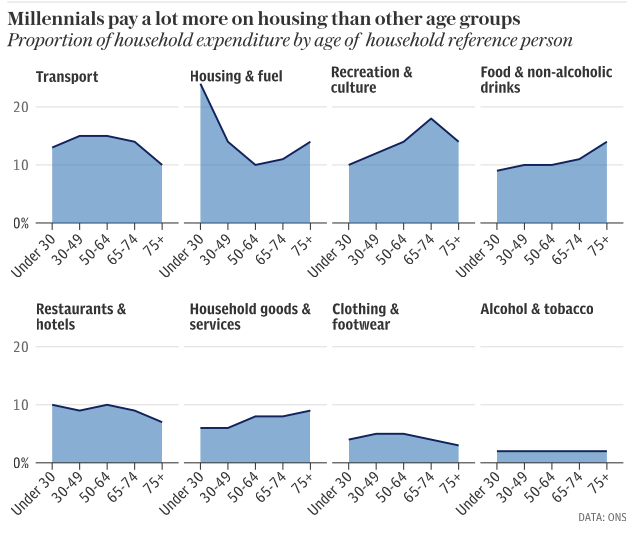...
The chart shows the household expenditure across the generations. What stands out is the very large difference for the proportion of income spent on housing. Indeed, whereas for my generation (the baby boomers) at age 30 around 40% of us owned our own house, today (for the millennials) it is less than 20%. Overall home ownership has dropped from 72.5% to 63.4% over the last 10 years (source tradingeconomics.com). Other statistics show that, for the generation under 30 today by the time they are 40, they will spend 64 hours more per year in commuting than we did at the same age. That is nearly 2 working weeks just travelling to and from work and less time spent with their families. |
The report concludes that facing significant deficits in health spending in the UK the traditional approach of asking the next generation to pay for the former just cannot work. Already, the millennials are less able to buy into home ownership, cannot afford to set aside enough for their own old-age and yet are facing the prospect of higher taxes to pay for my generation. This cannot work. The UK is not alone in this situation, it is faced by most developed countries to a greater or lesser degree.
I grew-up in a golden age without i-phones, computer games, cheap flights to weekend destinations and many other consumer goods, but whilst making life more agreeable they are not basic needs according to Maslow’s pyramid. We had home ownership, final benefit pension schemes and a free at source health-care system – and scientific progress means that we live much longer. My generation decided upon a social model which is not sustainable and which is leading to greater inequality between the have’s and have not’s.
...

